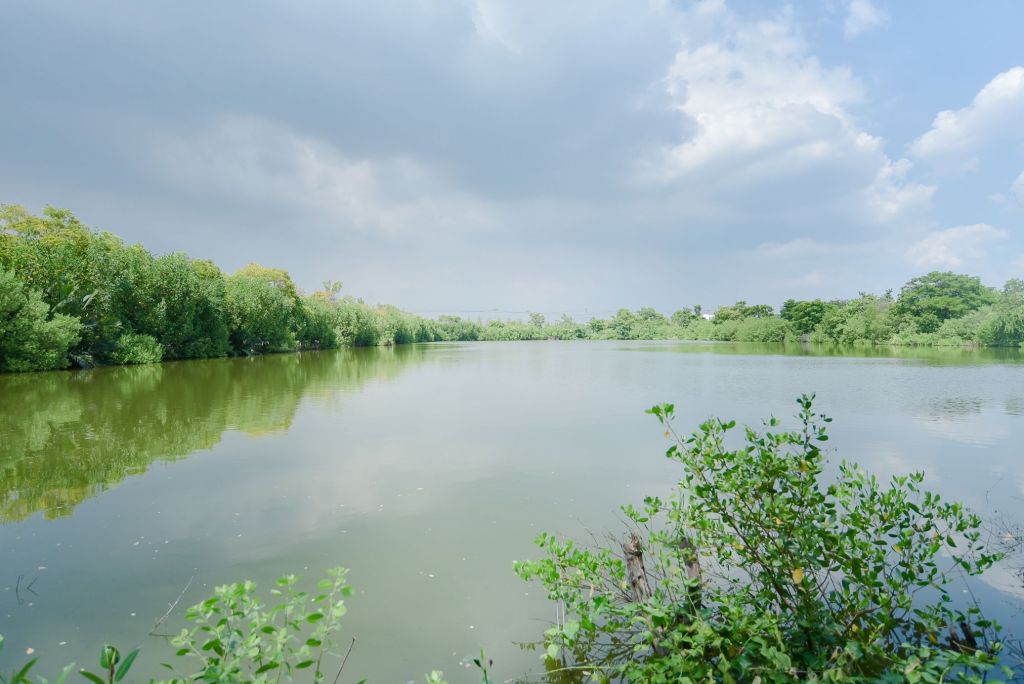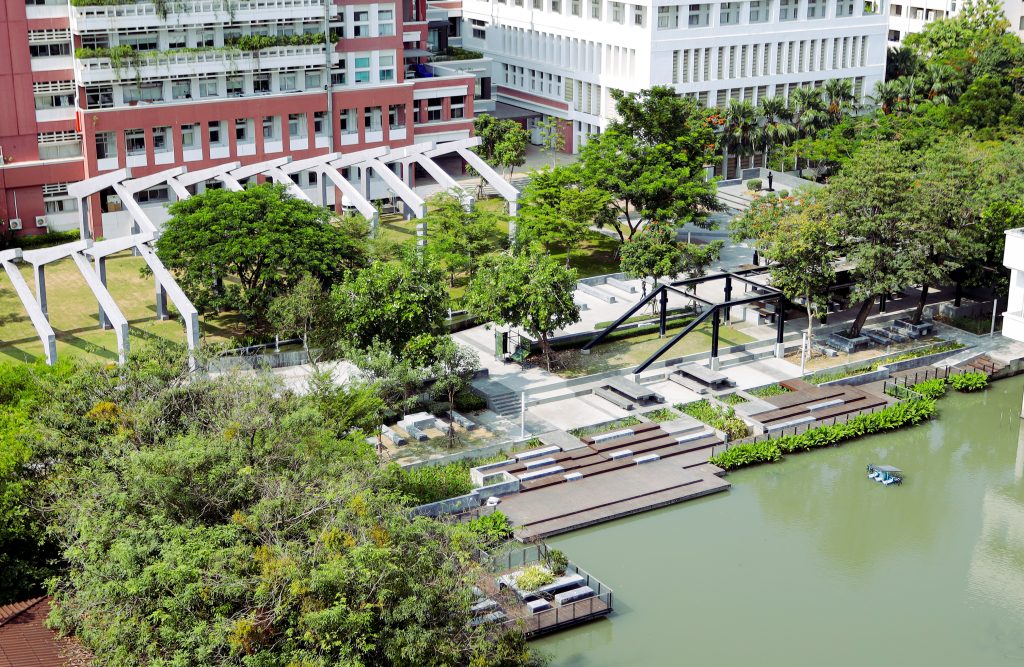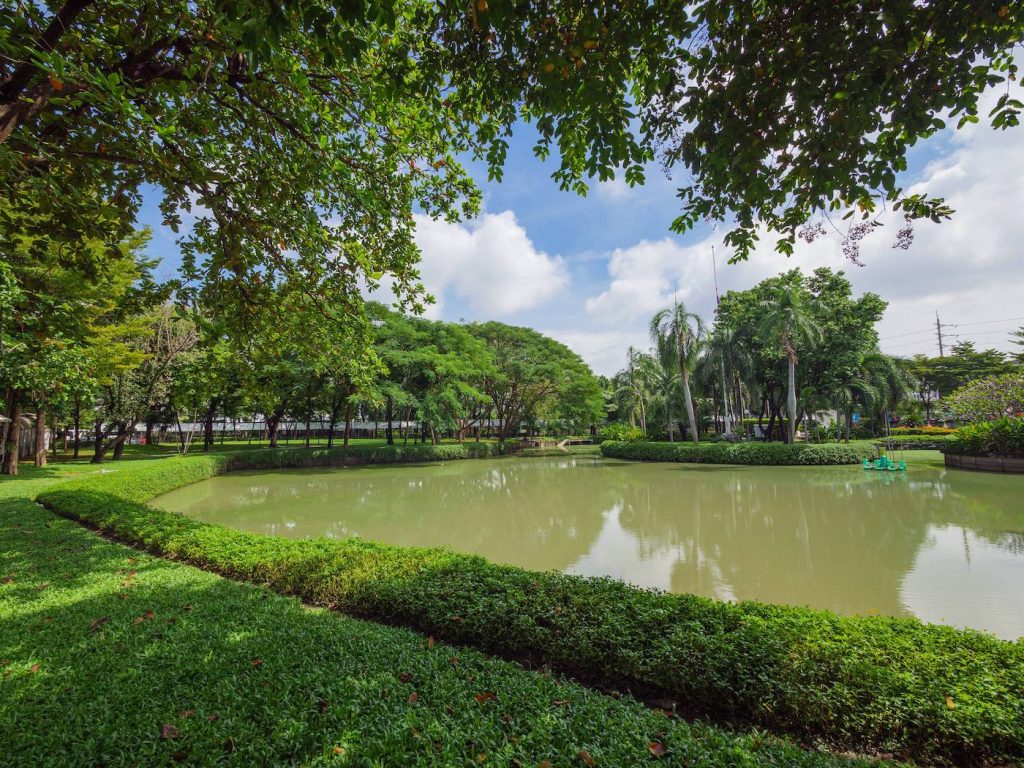at King Mongkut’s University of Technology Thonburi rainwater harvesting plays a central role in sustainable water resource management. The university has installed over fourteen rainwater harvesting systems across its campuses to collect, filter, and store rainwater for reuse—preventing runoff and maximizing natural water resources.
This system significantly reduces reliance on tap water for irrigation and campus greenery maintenance, resulting in an annual water saving of more than 136,600 cubic meters. By utilizing rainwater for non-potable purposes, KMUTT minimizes operational costs while promoting environmental responsibility and resilience against drought conditions.
To ensure water quality and safe usage, monthly monitoring is conducted at all rainwater collection points. Parameters such as Biochemical Oxygen Demand (BOD), Chemical Oxygen Demand (COD), and pH are regularly analyzed by the Central Laboratory Services to maintain optimal quality standards. In addition, phosphorus management is practiced to prevent algal blooms and to maintain adequate dissolved oxygen levels essential for plant and ecosystem health.
Through these comprehensive measures, KMUTT not only enhances its green campus initiatives but also demonstrates leadership in sustainable and integrated water management. The rainwater harvesting program reflects the university’s ongoing commitment to resource efficiency, environmental protection, and sustainable development.
Progress Toward Goals
Status (2025): Achieved and exceeded 37.78% of campus water usage now comes from rainwater harvesting
Goal: 35% of total campus water usage derived from rainwater by 2024







At King Mongkut’s University of Technology Thonburi (KMUTT) Ratchaburi Campus, a self-sustaining potable water production system ensures that 100% of the water used on campus is produced locally. This system, with a production capacity of 5 cubic meters per hour, represents KMUTT’s commitment to sustainable resource management and resilience against water scarcity.
The process begins with raw water collection from natural and rainwater reservoirs, which are pumped using a 5 m³, 15-meter pressure pump. The water then passes through a rapid filtration system where coagulants such as PAC (Polyaluminum Chloride) and POLYMER are added to facilitate sediment removal, followed by chlorination to ensure disinfection and compliance with drinking water standards.
The treated water is stored in three clear water tanks, from which it is distributed across the campus. The entire process is managed through an automated sedimentation and filtration system, maintaining continuous operation and optimal water quality.
By utilizing rainwater as the primary source, the campus significantly reduces its dependency on the Metropolitan Waterworks Authority, while maintaining consistent potable water standards.
This closed-loop water production system not only secures a reliable water supply but also exemplifies KMUTT’s integrated approach to environmental stewardship, operational efficiency, and sustainability. The Ratchaburi Campus stands as a model for eco-smart university infrastructure, showcasing how innovation in water management can lead to long-term environmental and economic benefits.


